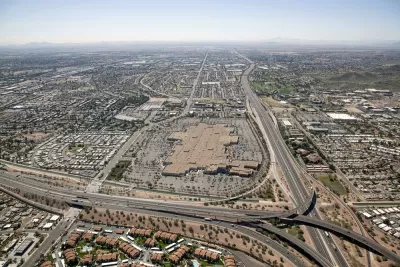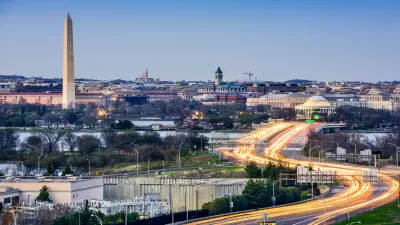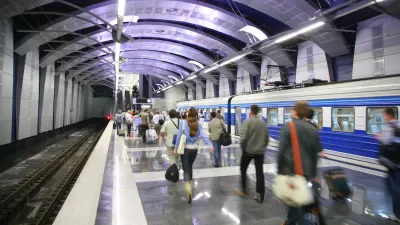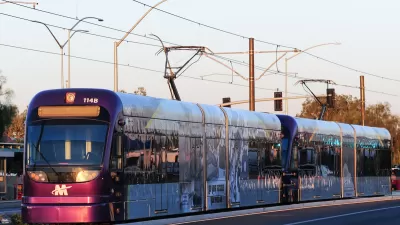Transportation for America, one of the leading advocacy organizations for multi-modal funding at the federal level, has announced a drastic change to its agenda.

"Transportation for America is no longer asking Congress to provide an increase in money for [the] federal transportation program."
That's the perhaps surprising revelation at the heart of a recent article by Beth Osbourne, who also states the reasoning behind the announcement:
Why in the world would we just pour more money into a program that is “devoid of any broad, ambitious vision for the future, and [in which] more spending has only led to more roads, more traffic, more pollution, more inequality, and a lack of transportation options,” as I wrote in the Washington Post during Infrastructure Week?
What the program should be about is accountability to the American taxpayer—making a few clear, concrete, measurable promises and then delivering on them. The program should focus on what we’re getting for the funds we’re spending—not simply whether or not money gets spent and how much there was.
Osbourne promises more details about the organization's new principles next week.
FULL STORY: Why we are no longer advocating for Congress to increase transportation funding

Alabama: Trump Terminates Settlements for Black Communities Harmed By Raw Sewage
Trump deemed the landmark civil rights agreement “illegal DEI and environmental justice policy.”

Planetizen Federal Action Tracker
A weekly monitor of how Trump’s orders and actions are impacting planners and planning in America.

The 120 Year Old Tiny Home Villages That Sheltered San Francisco’s Earthquake Refugees
More than a century ago, San Francisco mobilized to house thousands of residents displaced by the 1906 earthquake. Could their strategy offer a model for the present?

Ken Jennings Launches Transit Web Series
The Jeopardy champ wants you to ride public transit.

BLM To Rescind Public Lands Rule
The change will downgrade conservation, once again putting federal land at risk for mining and other extractive uses.

Indy Neighborhood Group Builds Temporary Multi-Use Path
Community members, aided in part by funding from the city, repurposed a vehicle lane to create a protected bike and pedestrian path for the summer season.
Urban Design for Planners 1: Software Tools
This six-course series explores essential urban design concepts using open source software and equips planners with the tools they need to participate fully in the urban design process.
Planning for Universal Design
Learn the tools for implementing Universal Design in planning regulations.
Clanton & Associates, Inc.
Jessamine County Fiscal Court
Institute for Housing and Urban Development Studies (IHS)
City of Grandview
Harvard GSD Executive Education
Toledo-Lucas County Plan Commissions
Salt Lake City
NYU Wagner Graduate School of Public Service





























